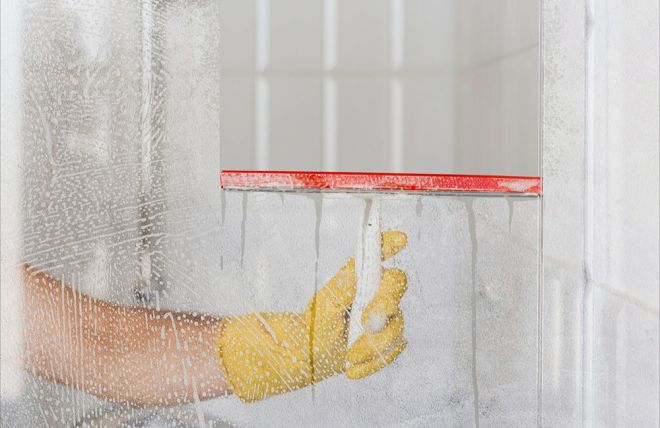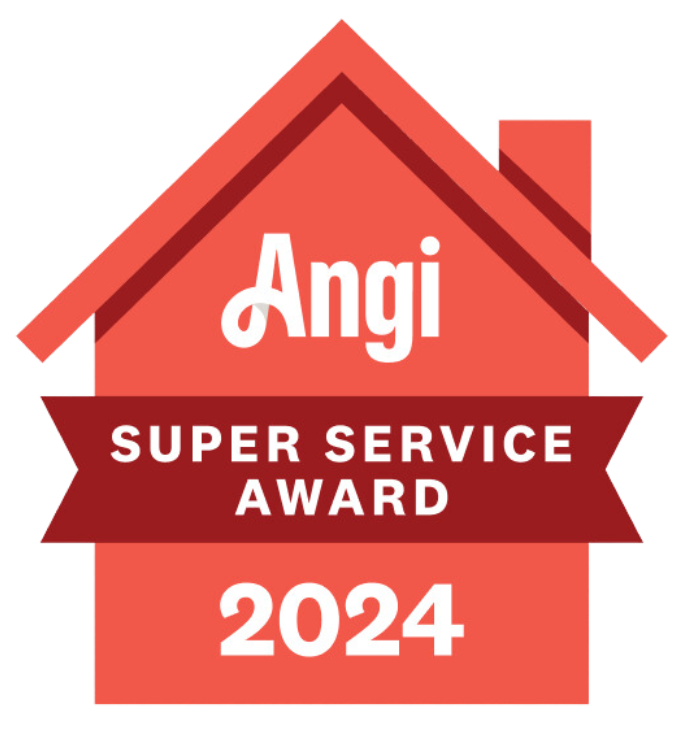Clean water plays a vital role in every home, especially in Chattanooga, Tennessee, where residents value quality and safety. Water purification offers a solution for homeowners seeking to enhance their water quality. This process involves removing impurities and contaminants, ensuring that the water you use daily is as clean as possible. For those interested in exploring various purification methods, water purification solutions offer a range of options tailored to different needs.
This article will guide you through the differences between reverse osmosis and traditional water filtration systems. Understanding these methods helps you decide which system best suits your Chattanooga home. Reverse osmosis and traditional filtration each have unique benefits and applications, making them suitable for different situations. By exploring these options, you can make an informed decision that aligns with your household's specific needs.
As we delve into the specifics of reverse osmosis and traditional filtration, we'll highlight how each method works, their effectiveness, and their suitability for various water quality issues. Whether you're aiming to reduce contaminants or improve overall water quality, this comparison will provide valuable insights into choosing the right system for your home.
Understanding Reverse Osmosis
Reverse osmosis in Chattanooga has gained popularity due to its effectiveness in purifying water. This method uses a semi-permeable membrane to remove most impurities, including dissolved salts, bacteria, and other contaminants. The process involves forcing water through this membrane, leaving behind the unwanted substances and delivering cleaner water for household use.
Chattanooga residents appreciate reverse osmosis systems for their ability to drastically reduce impurities in their water supply. Many homeowners have chosen systems like the Maytag 550 Drinking Water System, which offers reliable performance and high-quality water output. These systems are particularly beneficial in areas where water quality concerns are prevalent, providing peace of mind to families who prioritize health and safety.
While reverse osmosis systems excel at removing contaminants, they differ from traditional filtration methods in terms of complexity and installation. The technology behind reverse osmosis ensures thorough purification, making it a preferred choice for those looking to address specific contaminants effectively. As we explore traditional filtration methods next, you'll see how they compare in terms of simplicity and application.
Exploring Traditional Water Filtration
Traditional water filtration methods offer a straightforward approach to improving water quality. Systems such as activated carbon filters and sediment filters work by trapping particles and absorbing impurities as water passes through. These filters can effectively improve taste and odor without the complexity associated with reverse osmosis systems.
Activated carbon filters, like the Maytag AP Series Carbon Prefilter, are popular for their ability to reduce chlorine and other organic compounds. This makes them a practical choice for households looking to enhance their drinking water's flavor and smell. Sediment filters, on the other hand, target larger particles such as sand and rust, ensuring that these do not affect your home's plumbing or appliances.
Traditional filtration systems may be more suitable for homes with fewer specific contamination issues or where ease of use is a priority. They offer a cost-effective solution for general water quality improvement without the need for extensive installation or maintenance. As we move forward, we'll compare these systems with reverse osmosis to help you determine which fits best with your household's needs.
Key Facts About Reverse Osmosis and Traditional Water Filtration
|
Comparing Systems: Pros and Cons
When comparing reverse osmosis and traditional filtration systems, several factors come into play. Reverse osmosis systems, known for their ability to drastically reduce impurities, often require a higher initial investment. However, they can offer long-term savings by improving water quality significantly. Traditional filtration systems, like activated carbon filters, tend to have lower upfront costs and are easier to maintain.
Installation ease varies between these systems. Reverse osmosis systems might need professional installation due to their complexity, while traditional filters can often be installed by homeowners. Efficiency is another key consideration; reverse osmosis is highly effective in addressing a wide range of contaminants, making it suitable for households with specific water quality concerns.
For those seeking comprehensive resources on water treatment options, the Education Center offers valuable insights. Ultimately, the choice between these systems depends on individual household needs and local water conditions in Chattanooga.
Benefits for Chattanooga Homeowners
Chattanooga homeowners face unique challenges when selecting a water filtration system. Local water quality issues, such as sediment or chlorine levels, can influence the decision. Personal preferences also play a role; some may prioritize taste improvement, while others focus on reducing contaminants.
It's always beneficial to consult with professionals for personalized advice. This ensures that you have all the information needed to make a decision that aligns with your specific needs. Remember, there is no one-size-fits-all solution in water purification in Tennessee.
Exploring the Top 7 Benefits of Installing a Home Water System can provide additional insights into the advantages of tailored water solutions for your home.
Consider a Professional Consultation
Consulting with water treatment experts offers numerous benefits when deciding on a system. Professionals at TN Water and Air provide services that help tailor solutions to your specific needs, ensuring optimal water quality improvements. They can perform water tests to identify particular issues that need addressing.
Understanding the importance of testing water quality first is crucial in selecting the right system. This step allows for customized solutions that effectively address contaminants present in your local water supply.
For those interested in expert guidance, reaching out through the Contact Us page can connect you with professionals ready to assist with your water purification needs.
FAQs about Water Filtration Choices
Water filtration systems offer various options and capabilities, but choosing the right one can be challenging. Here are some common questions about reverse osmosis (RO) and traditional filtration systems to help guide you in making an informed decision for your Chattanooga home.
What is the lifespan of a reverse osmosis system?
Reverse osmosis systems typically require maintenance to ensure optimal performance. The RO membranes generally need replacement every two to three years. However, it's important to note that prefilters and postfilters may require more frequent changes, usually once a year. This maintenance schedule helps maintain the system's efficiency.
Can traditional filters handle hard water?
Traditional filters, such as activated carbon and sediment filters, can improve taste and odor by removing certain impurities from the water. However, when dealing with hard water, which contains high levels of minerals like calcium and magnesium, additional treatments may be necessary. Water softeners or conditioners can be more effective in addressing hard water issues.
Is professional installation necessary?
While some homeowners may feel confident installing water filtration systems themselves, professional installation often ensures optimal performance and longevity. Professional installers have the expertise to position the system correctly and can provide valuable advice on maintenance and care. For those considering DIY installation, consulting a professional can still be beneficial to ensure everything functions properly.
How does local water quality affect choice?
Local water quality plays a significant role in determining the most suitable water filtration system. By testing your water, you can identify specific impurities or contaminants present. Understanding these factors allows you to select a system that effectively addresses your unique water quality concerns. For those curious about potential water issues, testing your water can provide valuable insights.
Are there financing options available?
Yes, many companies offer financing options to make water filtration systems more accessible to homeowners. Check the specials page for any ongoing offers or promotions that may help reduce the initial cost. Financing can be an excellent option for those looking to improve their home's water quality without a significant upfront investment.
Choosing the right water filtration system involves considering various factors, including water quality, system capabilities, and installation preferences. Consulting a professional can ensure you have all the information you need to make the best decision for your home.
Finding the Right Water Solution
Choosing between reverse osmosis and traditional filtration systems involves understanding each method's strengths and tailoring the choice to fit your home's specific needs. Reverse osmosis systems in Chattanooga are well-regarded for their ability to address a wide range of impurities, offering a higher level of water purification through their semi-permeable membranes. This technology can significantly reduce contaminants, making it a popular choice for those seeking enhanced water quality. However, traditional water filtration methods, such as activated carbon filters, may offer simplicity and cost-effectiveness, making them suitable for households where basic water quality improvement suffices.
Each system has its own merits, and the best choice often depends on individual preferences and local water conditions. For instance, while reverse osmosis systems may provide comprehensive purification, traditional filters can be more accessible and easier to maintain. Consulting with a professional can help clarify these options, ensuring you have all the information needed to make an informed decision. The role of professional guidance cannot be overstated, as it offers insights into the specific requirements of your home, helping you navigate the complexities of water treatment solutions.
Taking the Next Steps Toward Cleaner Water
Ultimately, selecting the right water filtration system for your Chattanooga home is a decision that impacts both water quality and peace of mind. By carefully considering your household's needs and the unique attributes of each water treatment method, you can achieve a healthier water supply. Whether you lean towards the comprehensive capabilities of reverse osmosis or the straightforward nature of traditional filtration, the goal remains the same: improved water quality for you and your family.
We invite you to take the next step towards cleaner water by considering a professional consultation. Expert advice ensures you make the best choice tailored to your home's specific needs. Reach out and Contact Us for a Free Water Test to find the perfect filtration system for your home in Chattanooga. What improvements do you hope to see in your water quality?
From Our Blog
The 5 Benefits of Using Filtered Water in Your Kitchen this Holiday Season
November 22, 2023
In the heart of every home, the kitchen serves as the hub for nourishment and connection. As we strive to create healthier and more sustainable living spaces, one often overlooked yet crucial element is the water we use in our kitchens.
Continue ReadingWinner of 2024 Angi Super Service Award
November 13, 2024
Tennessee Water & Air Technology Earns 2024 Angi Super Service Award Recognized for Consistent Excellence in Customer Service
Continue ReadingReverse Osmosis vs. Traditional Filtration: Choosing the Best for Your Chattanooga Home
July 11, 2025
Clean water plays a vital role in every home, especially in Chattanooga, Tennessee, where residents value quality and safety. Water purification offers a solution for homeowners seeking to enhance their water quality.
Continue Reading



